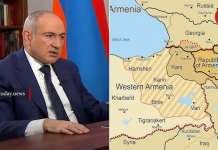On the 2nd of October, Armenia held its first major round of mayoral elections since passing the controversial constitutional reform referendum late last year. In accordance with the updated electoral code, 300 municipalities across the country, including Armenia’s second and third largest cities, Gyumri and Vanadzor, held their first-ever totally proportional mayoral races. This means that city councillors are selected by the candidate from the ticket with the highest proportion of the vote.
Gyumri and Vanadzor, have attracted attention as bastions of opposition to the ruling party. The government suffered a succession of embarrassing defeats in those cities in the previous parliamentary and presidential elections, as well as in the December 2015 constitutional reform referendum (which was widely seen as a vote of non-confidence).
A concerted effort by various opposition groups to cooperate in terms of awareness campaigns in order to reduce voter fraud characterised the run-up to the election. Talks of coalition forming between the the newly established liberal Lusavor Hayastan (Bright Armenia) and Civil Contract parties in the event of a successful unseating of Samvel Balasanian in Gyumri, and Mamikon Aslanyan in Vanadzor (both supported by the ARF and the Republicans) were also considered. Both Prosperous Armenia, and Armenian Renaissance parties (former government members with dubious opposition credentials) were also included in talks.
The ruling republicans managed to take advantage of a still-disorganized opposition, and the addition of alleged “spoiler candidates” to win over 60% of the contested elections. They fell short of a majority, however, in Vanadzor and Gyumri, where they received 37.5% and 35% respectively. This didn’t stop them fro declaring victory however.
The Central Election Committee (CEC) allocated 17 seats to the Republicans in the 33-seat Gyumri City Council despite them only winning 35% of the vote, while dismissing criticism by citing an obscure clause in the Electoral Code that allows election winners to get extra bonus votes. Rejecting an appeal by the 3 main opposition parties, the court upheld the CEC’s dubious decision to allot 2 extra seats to the republicans, allowing them to form the municipal government despite losing the popular vote.
Vanadzor’s post-election developments were no less dramatic. An attempt by the victorious coalition of opposition groups consisting of the Bright Armenia, Armenian Renaissance and Prosperous Armenia parties to form a city council was thwarted by an unexpected push to delay the council vote by the Republicans. They also insisted on a secret ballot rather than the traditional open voting process. When the council reconvened two days later, the Republican Party candidate Mamikon Aslanian received 19 out of 33 votes, despite his party having only won 15 seats, hinting that the Republicans may have used the 2-day recess to bribe or threaten councilmen to change their vote in secret. The identity of the members who broke party ranks has yet to be revealed.
The Republican party’s stubborn use of political manipulation to ensure victory shook public trust in the integrity of the constitutional reforms and has fuelled doubts that the ruling party is in no inclination to engage in any peaceful transition of power.
Despite many mishaps, this most recent electoral cycle has yielded some interesting results in the run-up to the April 2017 parliamentary election. Older, ineffectual opposition parties like the Heritage Party, and the ANC have been largely discredited and shoved aside by new political forces such as the Civil Contract and Bright Armenia parties. Opposition forces have shown, for the first time, an earnest interest in cooperation. The result has been demonstrated in electoral defeats for the ruling party, despite the utilisation of administrative resources. The widespread, and effective use of election observers also had an impact.
Nairi Hakhverdi, a seasoned electoral observer tasked with monitoring the voting process at Polling Station no. 30/6 in Vanadzor is confident that well-trained citizen-observers have had a determining effect on the final results there. She observes: “Imagine if we had not been there to stop registrations of absentee voters. Imagine if we had not been there to have the ballot box properly locked. Imagine if we had not been there to block the same person trying to vote multiple times. Imagine if we had not been there at all.”Raffi Elliott












